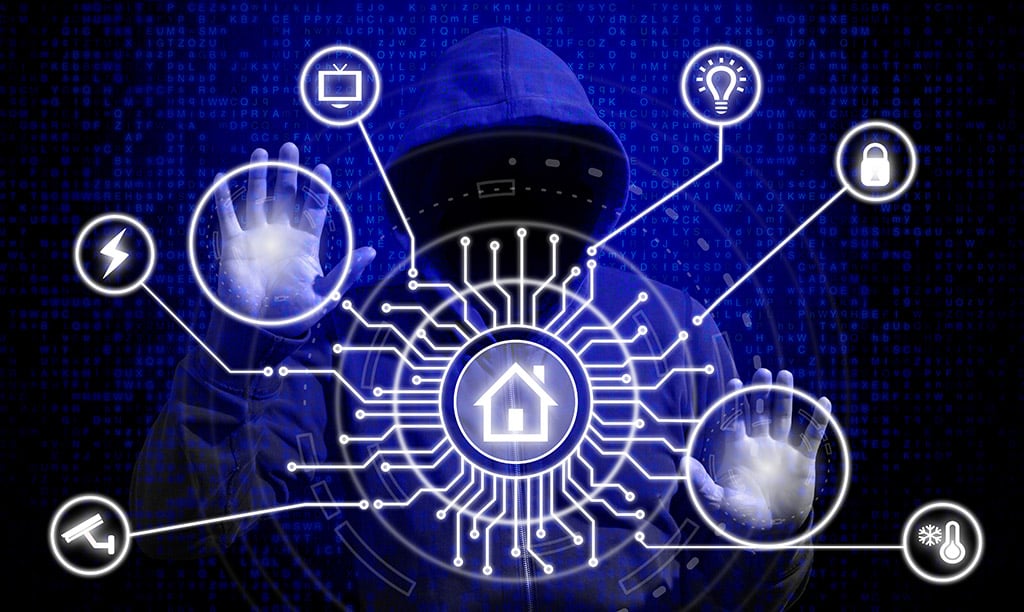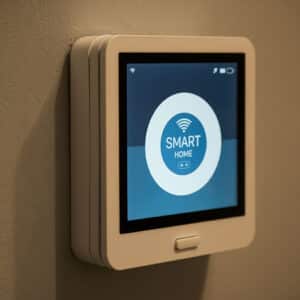Alarm installers sometimes find that clients are interested in more than just installing physical alarms – they want to make sure that their entire property is safe, and that includes protection against hacking. Demand for digital security has increased as smart security technology has become more common, and systems have started to integrate.
More business sounds great – but if clients start asking about cybersecurity in addition to their security systems, how should installers respond? Should alarm installers expand into cybersecurity solutions for their commercial clients? Is it even viable?
The answers depend on how an installer wants to specialize. Let’s look at the details, and situations where adding cybersecurity services could lead to big business.
Challenges of Incorporating Cybersecurity Offerings
While alarm clients may associate digital security with their overall security systems, the two are very different. Cybersecurity involves information technology, hacking attempts, and how a business stores and protects its data. It focuses on solutions like digital access control, firewalls and encryption, and choosing how data is stored and shared. In other words, it doesn’t have much to do with physical alarm installation and security systems. Entirely different training is required, and certifications can take years to earn.
So, if the industries don’t have much in common, should alarm installers even get involved in cybersecurity? On the IT side, no – that’s for other specialists. But there is some overlap between physical security systems and cybersecurity, and here a little knowledge can go a long way. Let’s look at a few cases where digital security knowledge can help impress clients and find important solutions.
Worries About Smart Device Hacking
This is a common worry for owners that are using wireless security devices and alarms that connect to the internet, phone apps, and so on. They may be concerned about someone taking remote control of a security cam and using it for spying, for example.
While this is technically possible for some systems, it’s a very rare occurrence – hackers just don’t get a lot of use out of hacking into smart devices like this, and burglars rarely bother. Also, smart devices are starting to adopt better encryption and more practices to prevent any kind of hacking technique. Still, there are several ways you can help clients, such as:
- Recommending systems that either don’t go online or use protocols that increase security. One of the latest examples is Thread, a Wi-Fi protocol designed for maximum security.
- Talking about which brands have a good track record offering security and encryption for all their devices.
- Recommending securing Wi-Fi connections with maximum encryption and robust passwords. Wi-Fi is often the most vulnerable point when hacking into smart security systems. If this is a major concern, you may want to recommend using a system with cellular data connections instead.
Knowing What Data Monitoring Centers and Others Collect
Owners may also want to know what kind of data their alarm monitoring center is collecting, and how that data may be used. Installers may want to do some research on what kind of cybersecurity alarm brands have, and if they’ve been hacked in the past: No personal knowledge of cybersecurity is needed to check on their data policies, so anyone should be able to do this.
Typically, monitoring centers don’t receive much direct information at all, except for an account ID and information about the device that was triggered. However, policies can differ between companies, so it’s always worth a check to provide the best information to the customer.
Controlling Who Can Access the System
Access control is especially important for security and alarm systems. Most businesses, for example, won’t want entry-level employees to have the ability to enter the system and mess around with settings. Some of this will depend on the owner’s approach to access management, but there are several layers to consider:
- Setting a PIN to arm and disarm the system, and choosing who to share it with. This is very basic security that owners should feel comfortable with.
- Protecting security apps on phones and computers. Users should have robust passwords on their devices and on security apps to help prevent unwanted access. Since apps can often control detailed settings for security devices or shut them down entirely, this can be a weak point for interference.
- Coordinating with IT to manage a comprehensive access system that may use cards or tags, and requires professional management to maintain.
- Using a notification system to alert owners about suspicious activity or access.
Protecting Cloud Data and Data Transfer
Users may also need to store and transfer data on the cloud, such as access logs or capture security camera video. Protecting that cloud data is also important. Try to recommend brands that use at least the expected TLS/HTTPS encryption, along with options like two-step authentication and single sign-on protection.
Cybersecurity in Alarm Installation
Even if cybersecurity is only slightly related to alarm installation, knowledge of digital security and how to help prevent hacking or data theft can still be very valuable. Today’s customers are more interested than ever in knowing what data their security systems collect, and how it can be protected. That can include learning about the cloud storage alarm systems use, and which systems provide the best protection and data management.
Basic courses, like Microsoft’s “Cyber Smart” initiative, are a great place to start for some ground-floor knowledge on cybersecurity. Don’t hesitate to recommend an IT consultation for clients who want to know even more.






